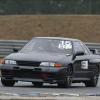Changed Brake Pads Need Help.
Announcements
-
Similar Content
-
Latest Posts
-
Yea look luddnem is a go kart track pretending to be a race track
-
jesus, top speed of 138, you might as well be doing Targa Tas under the new rules
-
(it is a brand new ported mellings pump) I suspect the lack of pressure is due to the leak. It was *not* that low in other logs of oil pressure in the past. It wasn't that hot either, but not far off.
-
Would a Mellings oil pump be a viable option From my time with a LS, and talking to tuners and LS specialists, the "weak" OEM oil pump is one of the first things they recommend to swap out if I was going to give the engine any high RPM I opted for a Mellings high volume, with the high pressure springs and I never had a issue with it Cost wise they are not expensive in the scheme of things
-






Recommended Posts
Create an account or sign in to comment
You need to be a member in order to leave a comment
Create an account
Sign up for a new account in our community. It's easy!
Register a new accountSign in
Already have an account? Sign in here.
Sign In Now